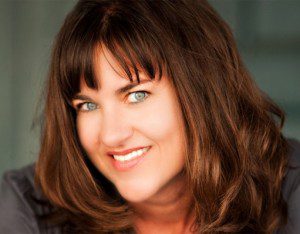Guest writer for Wake Up World
Ten years ago, when I quit my job in the hospital, I had just been through a series of traumas and I was hurting so badly I didn’t know how to cope. That’s part of why I quit my job — because I was in and out of feeling suicidal and I just wanted to stop hurting. So many of the people I knew were obviously hurting too, but they were trying to cover it up with addictions, overworking, dissociating, and defense mechanisms like denial. I didn’t want to numb or otherwise avoid the painful feelings I was having, but it felt like feeling my pain was going to be a full-time job for a while. My grief was so consuming, and I had stuffed down a decade of past grief alongside it, that I was afraid I’d be flooded if I allowed myself to feel the torrent of grief I could sense was running like a current of rapids under my barely dressed up heart.
Like many do, I turned to the spiritual path to help me cope, experimenting with retreats at Esalen, walking the labyrinth at Grace Cathedral, pilgrimages to sacred sites, shamanic drumming, guided meditation, silent meditation retreats, yoga, prayer, indigenous spirituality, self-help books, spirituality conferences, cacao ceremonies, ecstatic dance, despacho ceremonies, and pretty much every other “spirituality-du-jour” experience one could have without trying drugs or plant medicines. I became a spiritual tourist, bliss-hunting for the next spiritual high…
Until I realized I had just found another way to bypass my pain.
[pro_ad_display_adzone id=”110028″]
I was using spirituality to avoid feeling not just my own personal pain, but the global pain I could feel in my own heart and body. (Fellow empaths, you know what I’m talking about here.)
That’s when I started studying the shadow of spirituality and learned about spiritual bypassing. In its essence, spiritual bypassing refers to any way in which we use our spirituality to bypass painful emotions, like despair, anger, disappointment, jealousy, or loneliness. Robert Masters, author of Spiritual Bypassing: When Spirituality Disconnects Us from What Really Matters, writes:
We tend not to have very much tolerance, both personally and collectively, for facing, entering, and working through our pain, strongly preferring pain numbing ‘solutions,’ regardless of how much suffering such ‘remedies’ may catalyze. Because this preference has so deeply and thoroughly infiltrated our culture that it has become all but normalized, spiritual bypassing fits almost seamlessly into our collective habit of turning away from what is painful, as a kind of higher analgesic with seemingly minimal side effects. It is a spiritualized strategy not only for avoiding pain but also for legitimizing such avoidance, in ways ranging from the blatantly obvious to the extremely subtle. Spiritual bypassing is a very persistent shadow of spirituality, manifesting in many ways, often without being acknowledged as such. Aspects of spiritual bypassing include exaggerated detachment, emotional numbing and repression, overemphasis on the positive, anger-phobia, blind or overly tolerant compassion, weak or too porous boundaries, lopsided development (cognitive intelligence often being far ahead of emotional and moral intelligence), debilitating judgment about one’s negativity or shadow elements, devaluation of the personal relative to the spiritual, and delusions of having arrived at a higher level of being.
We have to remember that it hurts to be human, and pain is always here for a reason. Pain is usually our body’s or our heart’s way of saying, “Pay attention. Something is out of whack and needs to be healed.” When we use avoidance in holy drag to avoid pain, we limit the growth our souls crave.
The Hot Loneliness
In a recent Super Soul Session, Glennon Doyle Melton spoke about all the ways we try to avoid feeling what she calls “the hot loneliness,” including scrolling mindlessly through social media or popping pills. Just think of all the ways that our culture teaches us to grab for Easy buttons, the quick fixes and self-help tools and antidepressants and booze and social media obsessions and all the other things marketers target into our psyches to promise that there’s an Easy way out of pain.
In spiritual circles, the Easy buttons cloak themselves in spiritual garb. The Easy buttons come in the form of hours of meditation spent inhabiting non-dual awareness or ayahuasca ceremonies every weekend or attending one spiritual retreat after another seeking the next tool to avoid feeling the hot loneliness.
The problem is that when we transport ourselves out of our hot loneliness, we miss all of our transformation. Because everything we need to become the people we were meant to become next is actually inside the hot loneliness of now. So when we Easy button our way out we are like caterpillars who jump out of the cocoon right before we would have become butterflies. Because pain is actually not a hot potato. It’s the traveling professor and it knocks on everybody’s door, and the wisest ones say, “Come in. Sit down, and don’t leave until you’ve taught me what I need to know.” But we’ve got it all wrong. We are afraid of pain, but we were made for pain. We need to be afraid of the Easy buttons. Because the journey of the Love Warrior is to rush toward her pain and let her pain become her power.
Newsflash: It Hurts to Be Human
Being human hurts. We try so hard to avoid this fact, doing our best to numb ourselves with various addictions, overwork, obsessive love affairs, positive psychology, and or spiritual bypassing techniques to try to “love and light” our way past the pain. But no matter how you run away from pain, pain will track you down, stalking you like a leopard until you finally dive down into it and really let it devour you. We have to go all the way into our traumas (as I described here) before it can begin to release us, open our hearts, and show us that at the pit of our pain, all we meet is (paradoxically) unconditional love. This is what we’re so afraid of? Love?
When Spiritual Bypassing Comes in Handy
Spiritual bypassing can be a healthy tool when we need it. As I described here when I was attacked by a pit bull, it was helpful to be able to use my meditation training to be able to bypass the intense pain of the acute injury. If you’re in the midst of an acute trauma, go ahead and use the spiritual bypass! But we can’t outrun the pain forever. We can delay it until we’re emotionally and physically equipped to handle it, until we have the emotional resilience to be able to be with that much pain without killing ourselves, harming someone else, or going crazy. Spiritual bypassing sure beats other numbing and bypassing techniques, such as addictions that harm the body. But ultimately, we have to find within us the strength to go down the rabbit hole of our pain — and we can’t do that alone. We need each other. We need our tribe. We need a personal connection to Divine Source. We need therapists and spiritual counselors and soul friends who can hold our hands as we venture into the scary, painful unknown. Only then can we truly, deeply, fully heal.
May we all find that inner fortitude so that we can do what we must in order to be who we must.

About the author:
 Lissa Rankin, MD is a mind-body medicine physician on a grass roots mission to heal healthcare, while empowering you to heal yourself. She is the founder of the Whole Health Medicine Institute training program for physicians and healthcare providers, and the New York Times bestselling author of the books Mind Over Medicine: Scientific Proof That You Can Heal Yourself (2013), The Fear Cure (2014), and The Anatomy of a Calling(2015).
Lissa Rankin, MD is a mind-body medicine physician on a grass roots mission to heal healthcare, while empowering you to heal yourself. She is the founder of the Whole Health Medicine Institute training program for physicians and healthcare providers, and the New York Times bestselling author of the books Mind Over Medicine: Scientific Proof That You Can Heal Yourself (2013), The Fear Cure (2014), and The Anatomy of a Calling(2015).
Lissa blogs at LissaRankin.com and created the online community HealHealthCareNow.com. She is also the author of several other books, a speaker, a professional artist, an amateur ski bum, and an avid hiker. She lives in the San Francisco Bay area.
Connect with Lissa on Facebook and Twitter, or visit LissaRankin.com.
Recommended articles by Lissa Rankin:
- The Unmistakable Link Between Unhealed Trauma and Physical Illness
- Satisfying Our Emotional Needs Without Being Codependent
- Relationships on the Spiritual Path
- How to Make Your Body Ripe for Miracles
- Are You “Spiritual But Not Religious?”
- 9 Practical Tips to Help You Find Your Calling
- 10 Fun Ways to Reduce Your Cortisol Levels
- 6 Stories To Make You Believe In The Power Of The Mind To Heal You
- 7 Tips For Finding Your Tribe
- Holding Space When Someone Is In Pain
- 10 Surprising Things That Trigger “Fight-Or-Flight”
- Medical Error is Still the #3 Cause of Death in the U.S. – Are We Really Okay With This?
[pro_ad_display_adzone id=”110027″]








